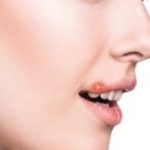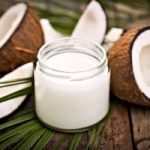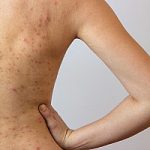Fish Oil for Hair Loss
One of the inevitable signs of aging is hair loss. The amount of hair we lose could depend on hormonal changes, hereditary, medications or a health condition. However, your diet and overall nutrition, including omega-3 fatty acid in fish oil, could help influence the health of your hair and scalp, which may improve the health of your hair. So while you may not be able to completely prevent hair loss, you can improve the health of your hair.
What Causes Hair Loss?
According to the American Skin Association, alopecia is the medical term used to describe all types of hair loss. Scientists have divided alopecia into two groups: scarring and non-scarring alopecia.
Scarring alopecia is caused by inflammation that destroys the hair follicle, resulting in irreversible hair loss. There are many causes that could destroy the hair follicle. Chemicals in hair relaxers, fungal infections and inflammatory health conditions are all known causes of hair loss.
Non-scarring alopecia is the most common form of alopecia and it’s also known as male pattern baldness. The hair loss is caused by an androgen called dihydrotestosterone, which appears to support inflammation of the hair follicle. More than 50% of men over 50 will be affected by it. It may also affect women, but it will cause thinning of the hair all over the scalp.
Benefits of Fish Oils for Hair
Eating a healthy diet, and getting enough healthy fats in your diet, can improve your skin, scalp and hair follicles.
And while you may not be able to completely stop hair loss, you may be able to reduce it and improve the overall health of your hair.
Fish oils contains the essential omega-3 fatty acids, eicosapentaenoic acid (EPA) and docosahexaenoic acid (DHA). Both fatty acids have been shown to help with brain function, repairs cells and contribute to health brain function.
Reports show that omega-3 fatty acids may help inhibit the hormone that causes hair loss, as well as stimulate the skin, scalp and hair follicle.
Research published in the Jan. 2013 issue of Dermatologic Clinics concluded that a deficiency of essential fatty acids can lead to hair loss, as well as hair color changes. A study in The Archives of Dermatology looked at a 19 year old man who suffered from hair loss and had a dietary deficiency of omega 3 fatty acids. Researchers applied a topical solution of essential fatty acids to the scalp. They found it helped reverse his alopecia and improved his overall hair health.
Scientists at a university in South Korea also found that fish oils made from mackerel promoted hair growth in animal studies.
And a study published in The Biochemical Journal showed that the fatty acid, docosahexaenoic acid (DHA), inhibits the production of dihydrotestosterone.
The above research indicates that omega-3 fatty acids in fish oil may benefits hair and scalp health.
How Much Fish Oil for Hair Loss?
Eating fatty fish at least twice a week should provide your body with sufficient omega-3 fatty acids. If you’re not able to get this amount of fish in your diet, then you may want to consider using nutritional supplements.
While scientists and health authorities suggest fish oil dosages for a range of health conditions, there is no recommendation for a minimum daily amount of EPA and DHA.
When buying fish oil, you’ll find they come in a range of different dosage sizes and omega-3 concentrations. The best products are ones that have been certified and analyzed by a third-party laboratory. This will help ensure that they contain minimal levels of contaminants and provide what’s indicated on the ingredient label.
Home Page > Fish Oil Home Page > Using Fish Oil for Hair Loss





